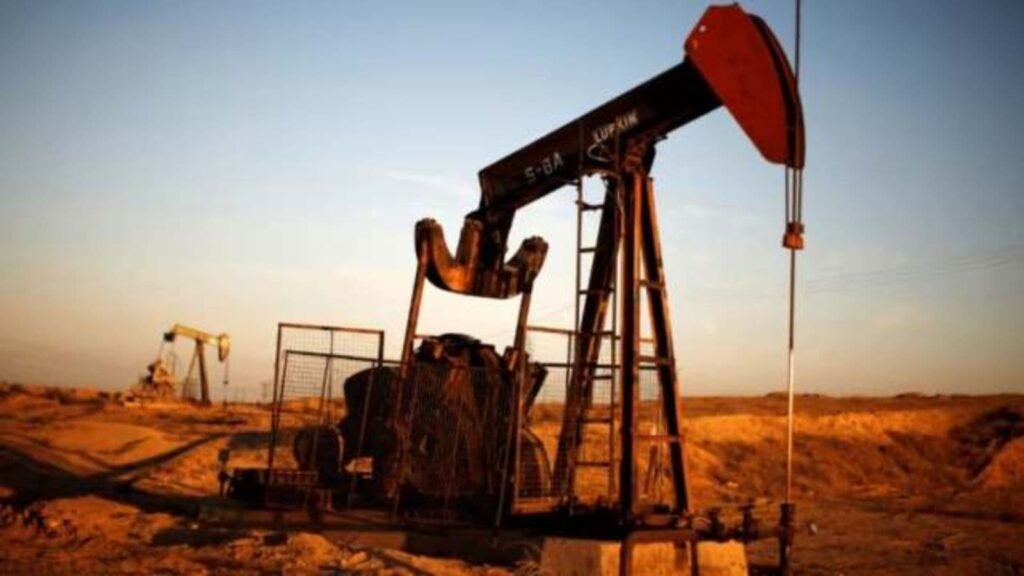The European Union (EU) is sanctioning Indian crude oil refiner Nayara Energy as part of its latest tranche of actions against Russia over the country’s war in Ukraine. The EU has also decided to lower the price cap on seaborne Russian crude from the prevailing level of $60 per barrel. Russian oil giant Rosneft owns 49.13% per cent in the company, which was rechristened to Nayara Energy from Essar Oil after the Essar group sold the refinery a few years back. Nayara Energy has a 20-million-tonnes-per-annum refinery in Gujarat’s Vadinar, and operates a network of around 6,800 fuel retail outlets. It also sells part of its fuel production to public sector oil marketing companies.
The action would mean that Nayara Energy would not be able to export petroleum fuels and products to Europe, and potentially hit any of its dealings with European companies. It could also hit Rosneft’s plan to exit Nayara as the EU sanctions could spook prospective investors. To be sure, Nayara Energy is not a big fuel exporter to Europe, and is estimated to have accounted for around 4 per cent of India’s total fuel exports to Europe so far in 2025, according to industry data. Reliance Industries (RIL) is the biggest fuel exporter in the country, and accounted for around 90 per cent of fuel exports from India to Europe so far this year.
The lower price cap on Russian crude, which has not been specified yet, could be beneficial for India if the new cap is strictly enforced. This is because India is a major importer of Russian crude and if the price of Russian barrels reduces due to a lower price cap, it could potentially lower the cost of imports for India. Currently, Russian crude accounts for around 40 per cent of India’s total oil import volumes.
Industry insiders said that the likely impact of the EU actions is not clear yet, and clarity is likely only when details of the sanctions and the new price cap emerge. Importantly, it has to be seen whether the United States will join the EU in these measures, as US action could have far greater consequences in terms of enforcement of the sanctions.
“We are standing firm. The EU just approved one of its strongest sanctions package against Russia to date. We’re cutting the Kremlin’s war budget further, going after 105 more shadow fleet ships, their enablers, and limiting Russian banks’ access to funding. Nord Stream pipelines will be banned. A lower oil price cap. We are putting more pressure on Russia’s military industry, Chinese banks that enables sanctions evasion, and blocking tech exports used in drones. For the first time, we’re designating a flag registry and the biggest Rosneft refinery in India. Our sanctions also hit those indoctrinating Ukrainian children. We will keep raising the costs, so stopping the aggression becomes the only path forward for Moscow,” Kaja Kallas, the EU High Representative for Foreign Affairs and Security Policy and Vice-President of the European Commission, posted on social media platform X.
In her social media posts, Kallas did not provide additional details of the EU’s latest sanctions package against Russia. The EU and the US are increasing pressure on Moscow to reach a peace deal with Kyiv and end the Russia-Ukraine war that began in February 2022. Energy exports are the biggest revenue generators for Moscow and Western powers have been targeting this revenue stream to force the Kremlin’s hand into ending the Ukraine war.
The US, EU, and a few other powers had imposed a price cap of $60 per barrel on Russian crude, as per which Western shippers and insurers cannot participate in Russian oil trade if the price of Moscow’s crude is above that level. Payment for oil cargoes in breach of the price cap cannot be in US dollars or Euros.
Story continues below this ad
According to industry sources, significant volumes of Russian crude imported by India are transported by the so-called shadow fleet—vessels effectively controlled by Russia—that doesn’t rely on Western shipping and insurance, which means that such shipments need not adhere to the price cap. The price cap is adhered to for cargoes that depend on Western shipping and insurance. To be sure, Indian refiners buy Russian crude on a delivered basis, which means that transportation and insurance are arranged by the seller.
© The Indian Express Pvt Ltd


